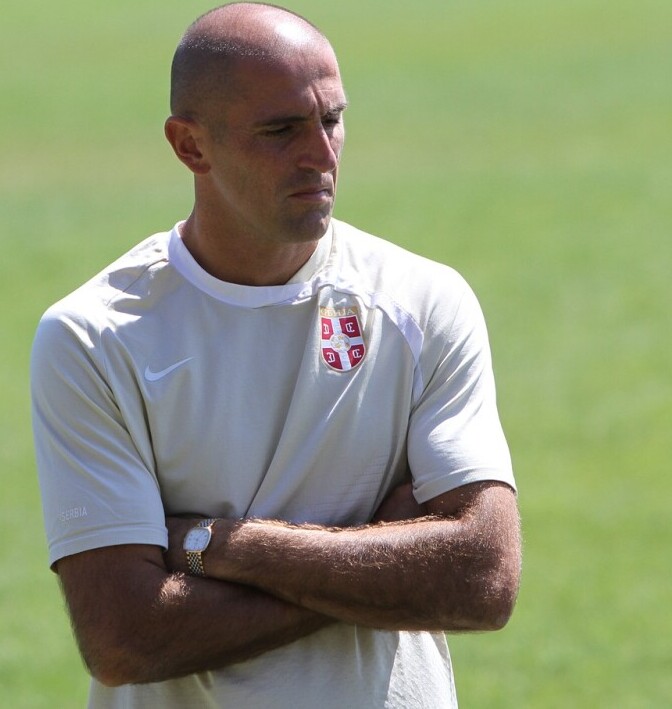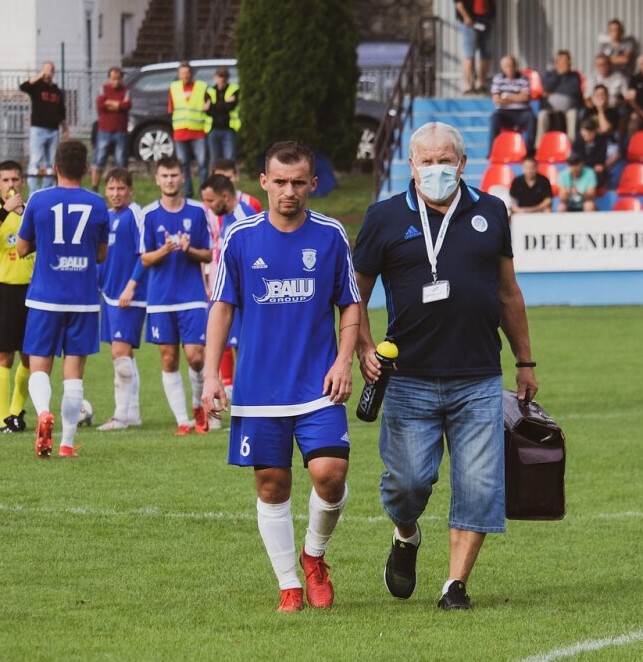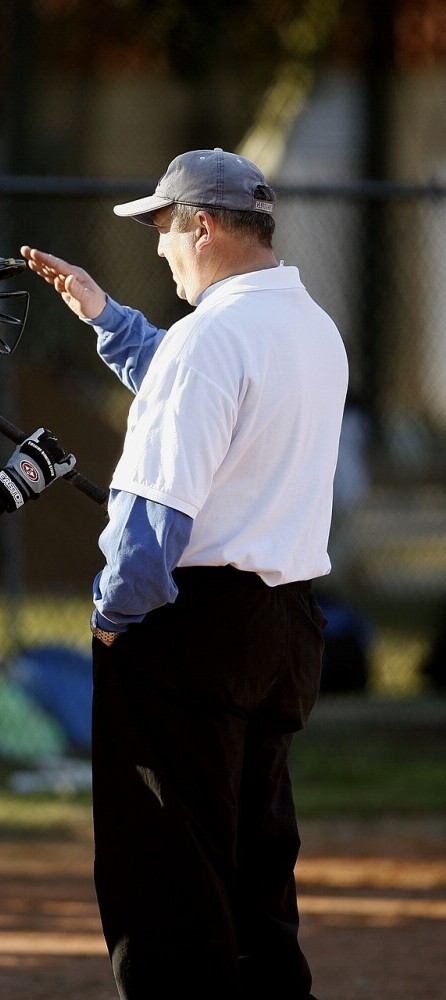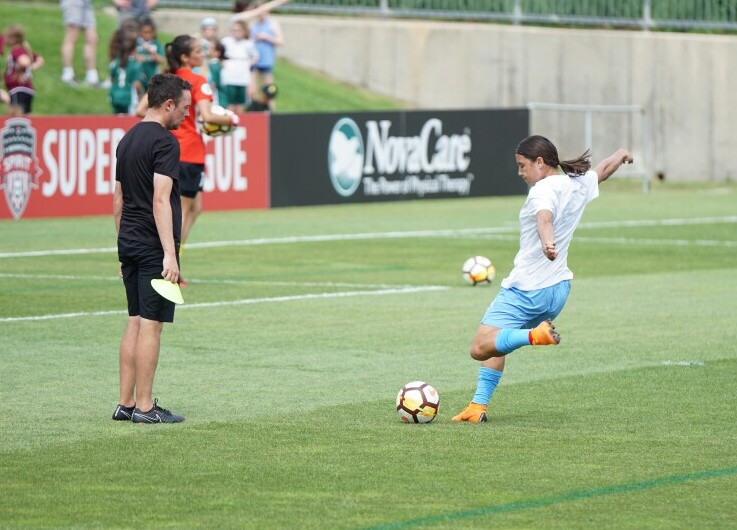
Youth soccer coaching is a tricky challenge but very rewarding too. The key is understanding that every kid is at a different place in their development. Some are just starting out, learning to run with the ball, while others are ready for more complex plays. Recognizing these stages can help tailor practices to be both challenging and engaging.
Communicating with young players isn’t just about telling them what to do; it’s about how you say it. Language should be simple and clear, and encouragement can make a huge difference. They need guidance, but also some room to learn through making their own choices on the field.
Patience and positivity, these are your best friends in coaching. Kids make mistakes, it’s how they learn. Patience will help you wait for those ‘aha’ moments, and positivity keeps them motivated, ensuring they feel valued even when they mess up.
No one-size-fits-all in coaching. You gotta tweak your techniques depending on the kid’s skills. For the beginners, it’s about making them comfortable with the basics. The more skilled ones can be pushed towards advanced tactics, keeping them engaged and growing their love for the game.
Creating a Positive Team Culture

Building a strong team culture in youth soccer is crucial for both player development and enjoyment. It starts with fostering respect and camaraderie among the players. Encouraging simple acts of kindness and teamwork helps create an environment where everyone feels welcomed and valued, forming the backbone of a solid team dynamic.
Fair play and sportsmanship should be at the heart of every game and practice. It’s important to reinforce that winning isn’t everything. Encourage young athletes to play with integrity, celebrating not just victories, but also effort and improvements. This sets the foundation for lifelong respectful competition.
Making sure everyone feels involved and inclusive is key. Rotate roles or alter positions during games so that every child gets a chance to experience different aspects of soccer. This approach not only enhances their skills but also builds their confidence by showing that their contribution to the team is important.
Trust between players and coaches is a game-changer. Kids should feel comfortable sharing their thoughts and asking questions. As a coach, it’s your job to be approachable and supportive, creating a space where communication flows freely. This builds trust and encourages a stronger team unit.
Designing Effective Training Programs
Crafting training programs that captivate and improve young players is vital. Injecting fun into drills and exercises keeps the kids eager to learn. Games that subtly incorporate skills like passing or dribbling are perfect for maintaining enthusiasm while building competence.
Balancing skill development with physical fitness is crucial. While honing techniques like shooting or dribbling, don’t forget the importance of conditioning. Young athletes need to develop agility, speed, and endurance for a well-rounded approach.
Training should vary with the season’s goals. At different times, the focus may shift from individual skills to team strategies or match preparedness. By aligning training with the team’s objectives, you ensure that players develop in a structured manner.
Technology and data analysis can be leveraged to fine-tune training sessions. This might include video analyses of games or using apps to track players’ strengths and weaknesses. These tools provide insights that can help tailor training to suit individual and team needs, keeping everyone on an upward trajectory.
Game Day Strategies: Preparing for Match Success
Getting ready for the big match involves more than just warming up. It’s about setting achievable goals so the team has something clear to aim for. These could be about working as a unit or trying out new strategies learned during practice.
Having players understand how to switch up tactics during a game is a real asset. Teach them to read the game, anticipate the other team’s moves, and adapt quickly. It’s not just about sticking to one plan—sometimes improvising is the way to go.
Stress is bound to be part of the game day package. Helping players manage this is important for keeping focus sharp. Techniques like controlled breathing and positive reinforcement go a long way in helping keep those nerves in check.
Win or lose, constructive feedback is where the real growth happens. Discuss what went well and what could be improved, always focusing on the positive takeaways. This approach keeps morale high and builds resilience, so they bounce back stronger every time.
Nurturing Long-term Development: Beyond the Game

Instilling a growth mindset in young athletes is essential for their overall development. Encourage them to see challenges as opportunities to learn rather than obstacles to fear. This mindset builds resilience and a lifelong love for continuous improvement.
Balancing academics and sports is a juggling act that young athletes need guidance with. Emphasize the importance of time management and prioritization, helping them understand that success is not limited to the field.
Parental involvement can be a powerful influence on a child’s sports experience. Encourage parents to support their kids, emphasizing cheerleading from the sidelines over coaching from the bleachers. Positive reinforcement from family goes a long way in building a supportive environment.
Preparing players for the next level involves more than just improving their skills. It’s about teaching them the values of discipline, commitment, and teamwork, and providing them with the tools to excel both on and off the field.




Youth soccer is about more than teaching the game—it’s about fostering foundational skills, a love for the sport, and essential life values. Coaching young players requires a thoughtful approach tailored to their developmental stage, balancing skill-building with fun. Drills focusing on basics like dribbling, passing, and teamwork should be interactive and engaging, making learning feel like play.
Creating an inclusive, motivating environment is key. Clear communication, celebration of differences, and positive reinforcement help young athletes feel supported and eager to grow. Striking a balance between competition and enjoyment ensures players develop resilience and sportsmanship while maintaining joy for the game.
Coaches also have the unique responsibility of shaping future opportunities for players. They foster athletic and personal growth by aligning goals with players and their families and providing guidance on pathways to higher levels. Youth soccer isn’t just a game—it’s a stepping stone for life.
thank you Andrejs so much that is lovely